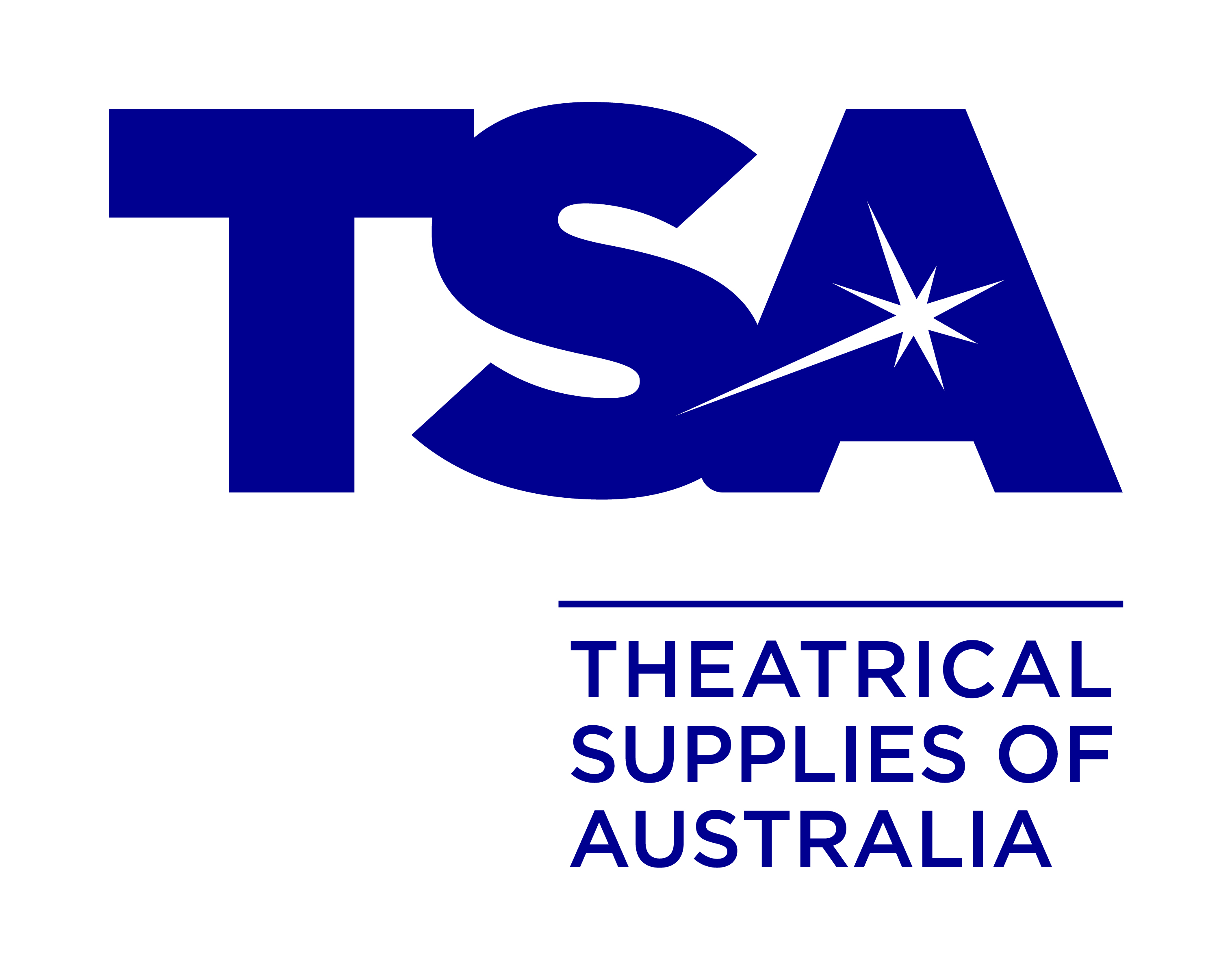
velvet stage drapes, velvet stage curtains, cycloramas, sharkstooth scrim, canvas backdrops, legs, wings, borders,,
Stage Curtain Finish |
||
| Top Finish
The top of the curtain is reinforced with heavy duty webbing made from cotton herringbone, jute or polyester. It is standard to use eyelets and cotton cord ties (A) to hang the curtains. For heavy duty applications, cotton webbing can be used in conjunction with eyelets and metal snap hooks (B). |
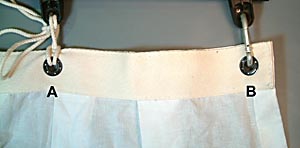 |
|
| Side Finish
A 50 mm double hem is standard for our curtains. |
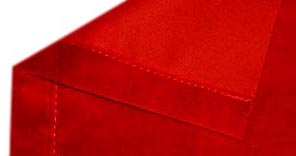 |
|
Leading Edge The leading edge of a bi-parting curtain, particularly a main curtain, can have a portion of the face fabric turned back. This prevents the audience from seeing the rear of the curtain when in movement or during paging. Standard face back is 200 mm for main curtains and 50-100 mm for tab curtains. |
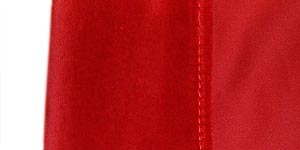 |
|
Bottom Finish For stage curtains with fullness, it is standard to finish with a 100 mm-150 mm base chain pocket. This pocket is reinforced with canvas and has Velcro tabs to secure the chain. |
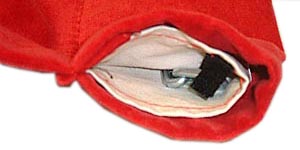 |
|
|
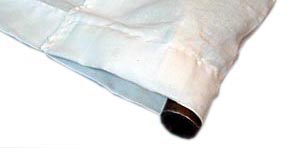 |
|
| Fullness
Fullness is additional fabric sewn into a stage curtain by means of pleats.
|
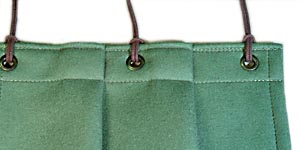 |
|
|
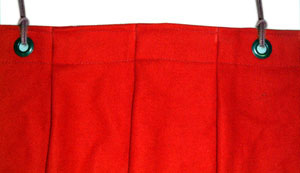 |
|
| 0% Fullness indicates that the curtain is completely flat, i.e. no pleats. | 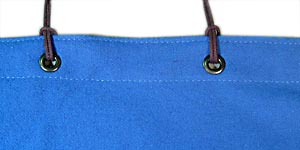 |
|